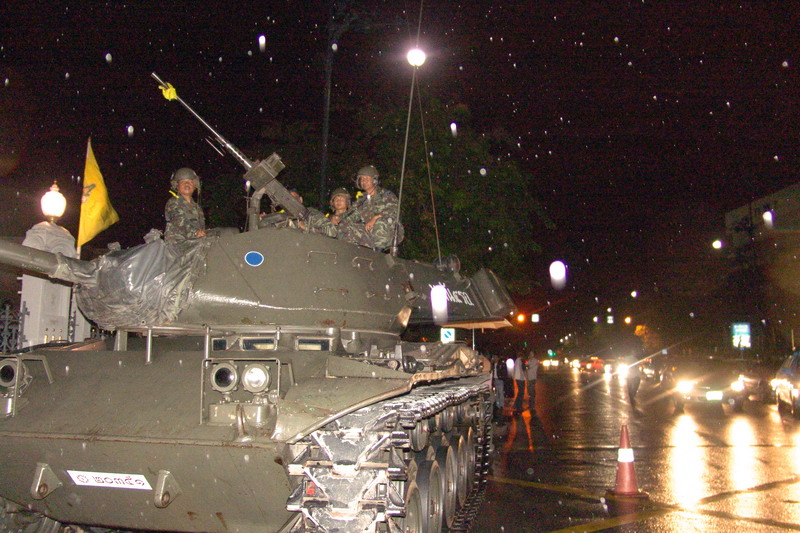Qilai, Qilai!
A History of Modern China
Event: British general election, 1997
Roy Hattersley had served as Britain's Labour Prime Minister for now nearly a decade. Hattersley had entered power in 1987 after the Howe government collapsed. Howe had faced growing opposition within his own party to his policies, and had been unpopular with leftist organizations, triggering growing strikes and problems for the United Kingdom.
Hattersley's time in 10 Downing Street had been moderating, and had a great longevity to it. Labour's majority only grew after the general election of 1992; and Labour looked to cement their majority once again.
However, before he could laurel his way to victory again, he faced considerable problems. In 1996, the Conservatives ousted the unpopular successor to Howe,
Michael Heseltine. Heseltine's policies were considered not far different than Howe, and he was defeated in a tightly-contested leadership election by
Kenneth Clarke, who had served in the Howe cabinet and had prevented the United Kingdom from entering the European Commonwealth; which he stated "did not reflect proper interests of the United Kingdom".
With the new, reinvigorated Conservative leadership, many Labour parliamentarians wanted to "freshen up" the party leadership; particularly with Hattersley's popularity sagging in the polls after a number of gaffes in 1995 and 1996.
A few major opponents to Hattersley within the party were many from the left of the party's line, and to the right. Representing the more "populist" factions of Labour,
David Cameron, a 31 year old MP from Whitney, who had defected to the Labour Party in 1991 after being elected as a Conservative in 1987, announced his intention to take the leadership.
Soon after Cameron broke the camel's back, numerous leftists threw their lot in.
Jeremy Corbyn, MP from Islington North, announced his intentions as well. Others such as
Joanne Rowling, MP from the Western regions of England, who recently had a large upswing in popularity with the publication of her young adult fictional novel in 1996,
Harry Potter and the Philosopher's Stone. Many questioned how a Member of Parliament could write a full-fledged novel and have it publised, but she had managed, thus far, to avoid any overt controversy from it.
Another candidate for Labour leadership that was strangely peculiar was the candidacy of
John Lennon, the 57 year old Member of Parliament from one of Liverpool's several constituencies. Lennon and Corbyn marked a significant push for the Labour Party to move even further left of where it was before the leadership election in early 1997. Rowling represented a "readjustment to center", Hattersley represented the "Old Guard" of Labour, and Cameron represented the "New Labour" ideology, one that he claimed would make it far more electable.
The Labour Party leadership election was contentious as ever. During the campaign, Hattersley's popularity was damaged after he was quoted as bemoaning the fact that Lennon and Rowling had "bloody popular culture appeal..." and he didn't. This release embarrassed him and his campaign, and lead to him being practically forced out of the race after many media outlets wailed on the Prime Minister, even Labour-friendly publications.
Lennon's victory was sort of expected by pundits, who pointed out his continued popularity. Like Hattersley and many other British politicians, he was opposed to British inclusion in the European Commonwealth, but unlike many others, he was a notable anti-war leader, and was opposed to the proliferation of atomic weapons. In a speech given at Oxford University on the campaign trail, he warned that "nuclear weapons shall be our undoing."
The fall of Hattersley from leadership pre-maturely triggered the 1997 election; only three weeks before it had been scheduled to go on anyway, as the Labour leadership election had been bogged down by the tight-knit set of circumstances.
The election, held on April 15, 1997; saw the Labour majority broaden even more so, securing more power for the Labour Party, a notable turn-around from their period in the wilderness after the fall of Clement Atlee in 1951. Lennon entered 10 Downing Street with his wife, Cynthia, and took over as Prime Minister of the United Kingdom of Great Britain and Northern Ireland.
His victory in 1997 meant that Lennon was the serving Prime Minister during the outbreak and horror of the Kargil War in May 1999. After hearing the news, one of the first things Lennon did, was call his friend George. George had been periodically visiting India during the 1980s and 1990s, and was happy to know that George had been visiting Eastern India, and the Chinese were "forcibly evacuating him" (being a foreign national) to Hanoi before he would be sent home.
Lennon's speech at Oxford was almost eerie after the Kargil War, in which Lennon's government leapt at the throat to start rallying people together to aid India and Pakistan. In a speech given after the war's end, Lennon appealed to the public to help the subcontinent, and his popularity spiked immensely as a result of his humanitarian appeals; and his committed attitudes towards nuclear reduction and "peace worldwide", a noble goal, in all respects.







